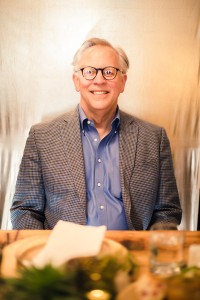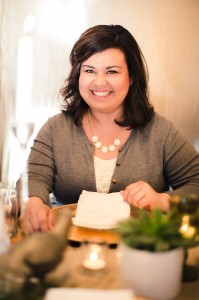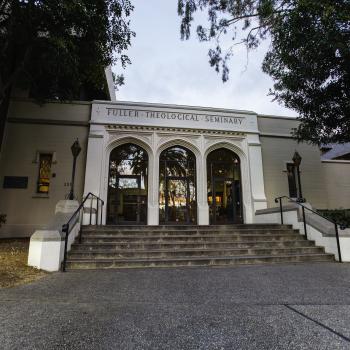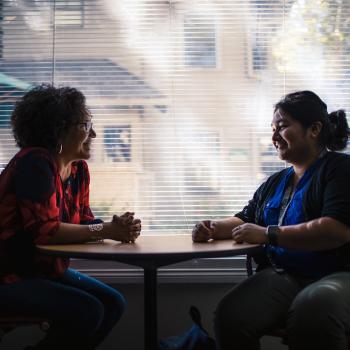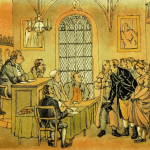Gathering around a table can be an emotionally fraught experience—especially during this tumultuous moment of our shared public life. We hope these stories from our Story Table on hospitality encourage you no matter what table you join this Thanksgiving.
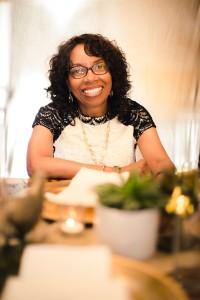 Jean Burch, Senior Pastor of Community Bible Church of Greater Pasadena
Jean Burch, Senior Pastor of Community Bible Church of Greater Pasadena
“We never would have put a name or a title to hospitality because it just seemed to be a part of who we were, as part of our DNA. I’m southern bred, born in Arkansas, and it just was sort of a part of our family. I was just thinking the other day that there was always somebody at our house that my mother didn’t birth. There would be times when we would come home on Saturday after being out all evening, and we have to step over people. We still have blankets at our house piled up so that whoever comes over can have a blanket covering them up.”
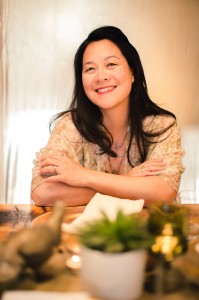 Miyoung Yoon Hammer, Chair and Associate Professor of Marital and Family Therapy
Miyoung Yoon Hammer, Chair and Associate Professor of Marital and Family Therapy
“When I was growing up in Riverside here in California, we always had Korean students in our home at Thanksgiving. Even though we were a family of four, our house was filled with students who had no concept of Thanksgiving and that certainly had nowhere to go for Thanksgiving. If they couldn’t afford to go back home for Christmas, they would be with us. Our home was a place where they could belong and just be. I remember growing up wondering, who’s going to be in our house now?”
“I remember going in through the back door and being amazed that in the pantry was a whole array of food that had been prepared that week for this meal of probably 10 or 15 people. The husband went into the house, and I stood amazed in this little room with these different dishes that had been prepared. It tilted me from utter despair to a capacity to reimagine a future again, and it happened in this very hospitable but just very gracious and common sort of way. Their hospitality changed my life. I actually call that couple every Thanksgiving to thank them that I’m alive and that I’m alive because of their hospitality.”
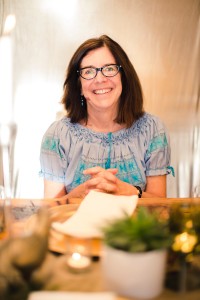 Catherine Barsotti, Affiliate Professor
Catherine Barsotti, Affiliate Professor
“This was the plate that my Nonna—grandmother in Italian—would always have ready when I came to visit. She had one for every one of her grandchildren. Each plate was equally beat up and chipped. She would make you a fried egg, or a scrabbled egg in this little dish, and it was just for you because you were special. She and my grandfather did not have much at all, but they knew how to make people feel special when they walked in this little house. Every time I pull this plate out, I think about all the hospitality that has trickled down from her through my family.”
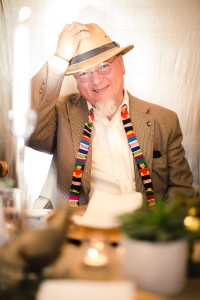 Johnny Ramírez-Johnson, Professor of Anthropology
Johnny Ramírez-Johnson, Professor of Anthropology
“Many times Clara and I have had people at our home, and it had bitten us back. There was a man who came to the missionary compound with long stories. He brought x‑rays and all kinds of documentation to prove it was a true story, and we ended up giving 30 percent of our monthly budget to him because his story was so compelling. As soon as he left, guards came to our door saying, ‘There is a guy taking money from people here because they are so easily persuaded,’ but we chose not to let that define us. It’s better to be taken advantage of than to live with a spirit of doubt.”
“One time I dropped one of the cups as I was trying to clean up, and she said, ‘No problem, the story lives on, the thing can go away.’ We didn’t even clean it up. She just said, ‘You know, if you don’t remember anything about what we do here, I just want you to know one thing: always have a home that is clean enough to be healthy but dirty enough to be happy.’ Ever since that day I’ve broken a lot more cups and spilled a lot more things in people’s homes, but I always remember that moment—especially as I try to foster that kind of hospitality now.”
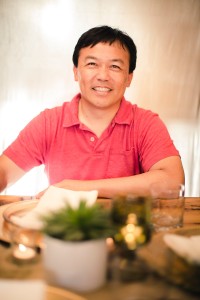
Tim Yee, Pastor of Union Church
“There’s something about entering someone else’s house empty-handed without any power or control. It left this indelible mark in our minds. We were learning out of our ignorance that hospitality comes often with silence; it comes when you don’t know what to offer, when you actually think you have nothing to offer. We were sure glad that we trusted the uncertainty of sitting at Juana’s table, and building this small relationship with her, and walking where she wanted to walk. Our discomfort made space to build something. What a joy we got invited into that story.”

